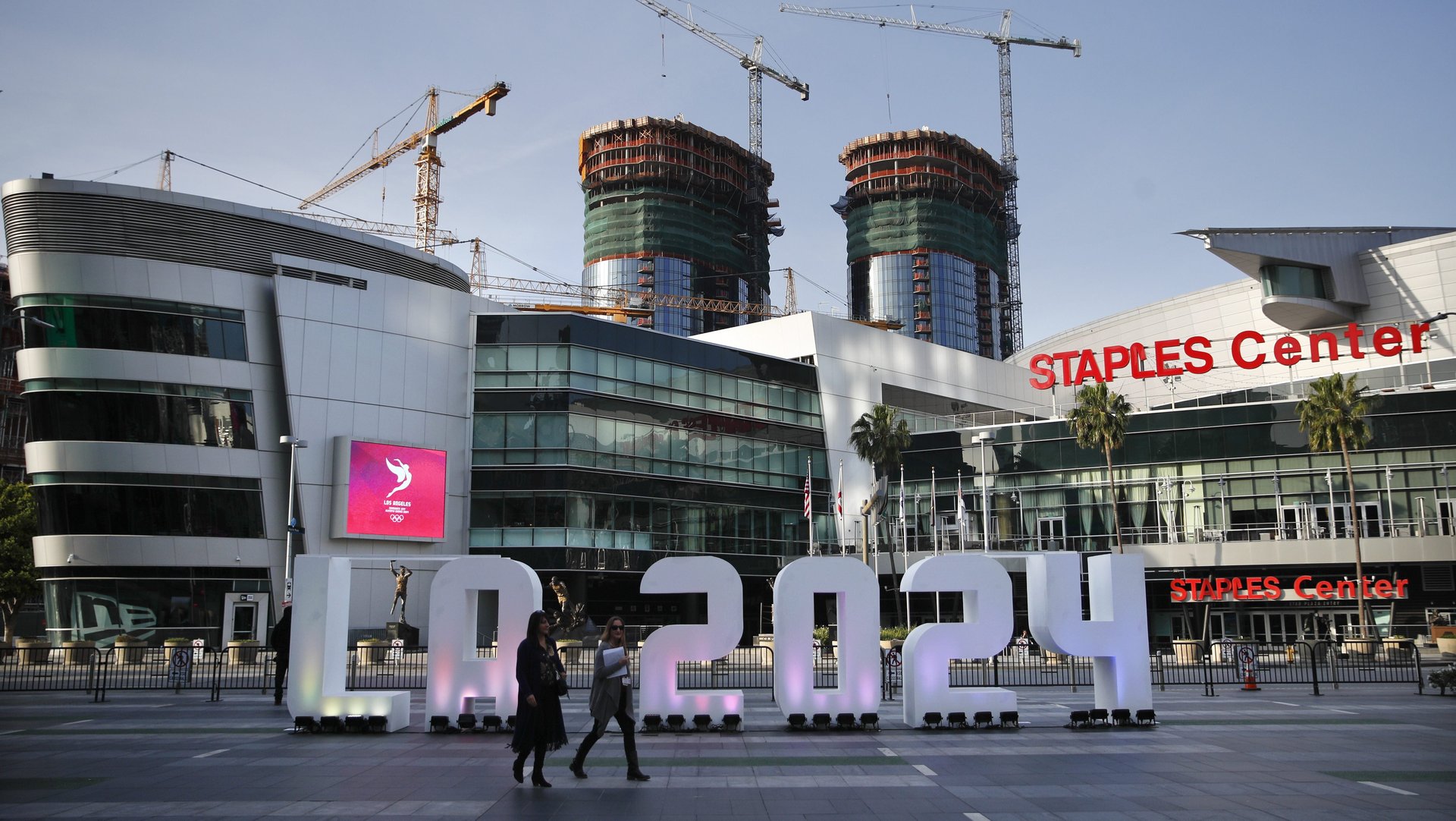Three decades ago Los Angeles set off the Olympic spending arms race, and now it’s ending it
Los Angeles’s 1984 Olympics were a financial success, setting off an era of expensive one-upmanship among cities wanting to replicate it. As competition increased, Olympic bids got more lavish and extravagant.


Los Angeles’s 1984 Olympics were a financial success, setting off an era of expensive one-upmanship among cities wanting to replicate it. As competition increased, Olympic bids got more lavish and extravagant.
So it’s fitting that LA would put an end to the current Olympic arms race by being awarded the 2028 summer games—even if the city’s success was almost by default. LA said on July 31 it has reached a deal with the International Olympic Committee (IOC) to hold the international sports event in 2028. No bidding contest necessary.
Los Angeles had originally been vying for the 2024 Olympics in the least competitive race in years. With the exception of Paris, all the other bidders—Budapest, Rome, and Hamburg—had dropped out due to cost concerns and public opposition. That left the IOC with the embarrassing prospect of not being able to gin up any interest for the 2028 games.
So, in a move apparently designed to avoid that outcome, the IOC decided earlier in July to award both games at the same time. Until yesterday, it was unclear which city would go first. With the deal, the implication is that Paris will host the 2024 games. (The official announcement will be made in September.) Los Angeles will receive $1.8 billion from the international body for agreeing to wait four years.
It’s somewhat reminiscent of how Los Angeles ended up hosting the 1984 games. Back then, it was the only candidate. After a terrorist attack that targeted Israeli athletes during the Munich 1972 games, and a financially catastrophic Olympics in Montreal in 1976, many cities were wary of raising their hands to volunteer. (The Moscow 1980 games were boycotted by dozens of nations in protest for the Soviet Union’s invasion of Afghanistan in 1979.) To overcome cost anxieties, LA put together a plan in which corporate sponsors covered some of the costs of hosting games for the first time.
It worked. Not only did Los Angeles stay within budget; it had a surplus (pdf.)
That got other cities excited about hosting future Olympics, says Victor Matheson, a professor at the College of the Holy Cross in Massachusetts, who specializes in mega-event economics. But unlike LA, which simply had to prove it was up to the task of holding a massive event, cities competing to host subsequent Olympics had to stand out in a more crowded field of competitors. To outdo their rivals, Olympic bidders started getting fancier, he adds.
That’s the path that led to Beijing’s $500 million Bird’s Nest stadium, and other Olympic white elephants. As you can see in the chart below, Angelinos’ frugality stands out.
Fast-forward to the bidding for the 2024 games, and you end up with only two bidders.
Taking a page from its own book, LA proposed a budget Olympics. The city will be again relying on corporate sponsors, and will be mostly using existing infrastructure. Even so, Matheson says, the odds of making money from the games are not in the city’s favor: “Hosting the Olympics tends to be a really expensive proposition that is far more likely to cost you than bring positive returns.” Still, he says, with its modest aspirations, LA at least has a shot.